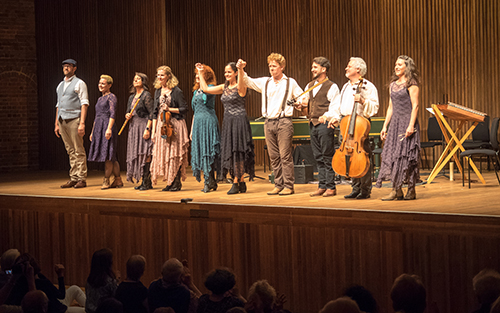by Daniel Hathaway
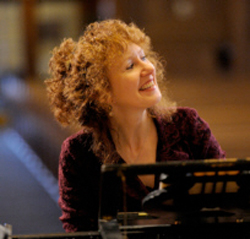
Founder and artistic director Jeannette Sorrell said in a telephone conversation that the opening concerts at the Cleveland Museum of Art and the Cleveland Institute of Music on October 12 and 14 will give the Orchestra new opportunities with some familiar repertoire. “Mozart’s Symphony No. 40 and the Ballet Music from Idomeneo are pieces we’ve lived with for a number of years, but we’ve never had the chance to play them in a proper-sized concert hall or to film them for video, which is becoming more and more important for the ensemble. Our videos were the first introduction to Apollo’s Fire for many people.”
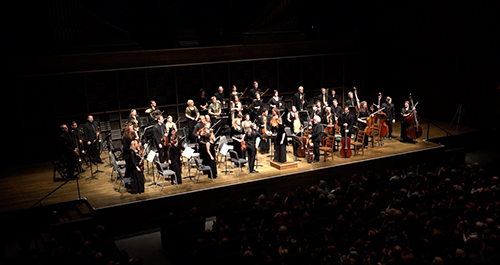
At the other end of the season lies Bach’s great Mass, a piece he might have composed as a kind of musical resumé for a position in Dresden. He never got to perform it, and neither has Sorrell — until now. “We did the ‘Gloria’ once, but I’ve been waiting for the right personnel to do the whole piece. Some of the arias have virtuosic parts for instrumental soloists, and the choruses require three excellent trumpet players. You just don’t want to hear the piece if the brass aren’t good.”
Apollo’s Fire and Apollo’s Singers will perform the Mass four times between April 12 and 15, the first performance as part of the 2019 Baldwin Wallace Bach Festival.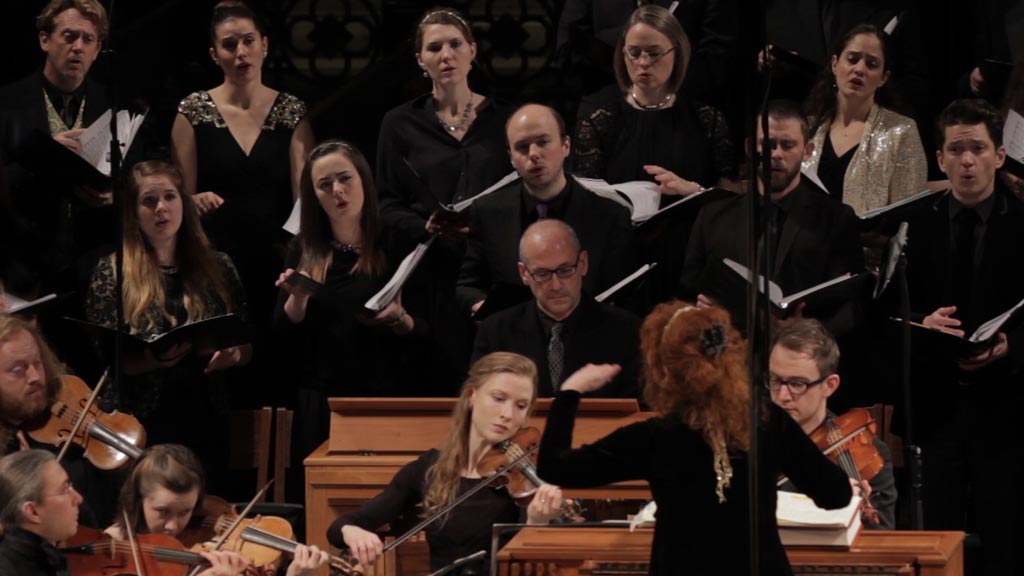
Two Christmas shows are on the Apollo’s Fire agenda for December. Handel’s Messiah will be presented both in express and complete versions between December 1 and 3. “Two years ago, the Metropolitan Museum in New York asked us for ‘a pocket Messiah,’ so we performed a one-hour version in the afternoon and a full version in the evening,” Sorrell said. That formula will be repeated on December 1 at First Baptist Church in Shaker Heights, the afternoon performance to include the “Christmas” portion of the oratorio, the trumpet aria, and the “Hallelujah” Chorus.
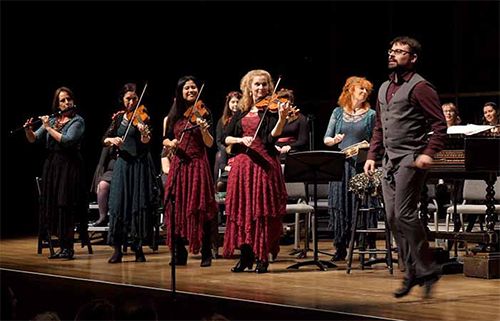
The smaller spring shows include performances of Biber’s famous “Mystery” Sonatas featuring solo violinists Johanna Novom, Adriane Post, Karina Schmitz and Carrie Krause, in four performances from January 31 through February 3. Each of the 15 sonatas and the final passacaglia requires retuning violins in special configurations. “There will be a whole collection of violins backstage,” Sorrell said. “It’s totally impractical to retune instruments during a live performance.”
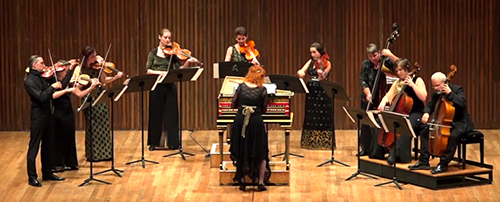
Finally, two cycles of the new Baroque Bistro series will be presented in October and February. On October 26 at Montrose’s Mustard Seed Market, and October 28 at Cleveland’s Music Box Supper Club, Amanda Powell and Brian Kay will preside over “Wing it,” a program Sorrell said will explore the intersection between Baroque music and jazz. “Playing basso continuo is like reading jazz charts, and the role of improvisation is similar too.” The February set of three performances, including one at Nighttown, centers around Valentine’s Day and the music of Dowland and Purcell. “I can promise you that Amanda and Brian sing this music much more beautifully than a certain rock star,” Sorrell said.
We launched our conversation by catching up with Jeannette Sorrell about Apollo’s Fire’s tour to the U.K. last summer, when the ensemble took “Sugarloaf Mountain” to the Aldeburgh Festival, Belfast Castle, the National Concert Hall in Dublin, and the National Opera House in Wexford. “Aldeburgh was packed with a great audience of very intent listeners, many of whom sat on the ground, prom-style,” she said. (Watch a video of the opening sequence here.)
Among other highlights, the concert at Belfast Castle — not a medieval fortress but an 18th century building — was for a private audience of government dignitaries, community leaders and BBC people, filmed for a documentary about the 300th Anniversary of the migration of the Northern Ireland Ulster Scots to Maine and New Hampshire.
Sorrell also noted that the Irish Times picked Apollo’s Fire as “the best traditional musical gig of the week,” probably the only time a Baroque period instrument group had been so honored. Was the tour a success? “Three of the presenters have already invited us back,” Sorrell said, “which will be the makings of our next European tour.”
Photo credits: Apollo’s Fire, Erica Brenner Productions, Roger Mastroianni, Stefan Cohen, Sisi Burn.
Published on ClevelandClassical.com October 11, 2018.
Click here for a printable copy of this article




